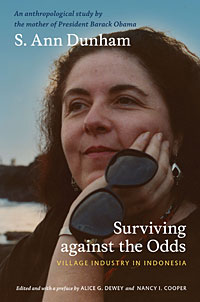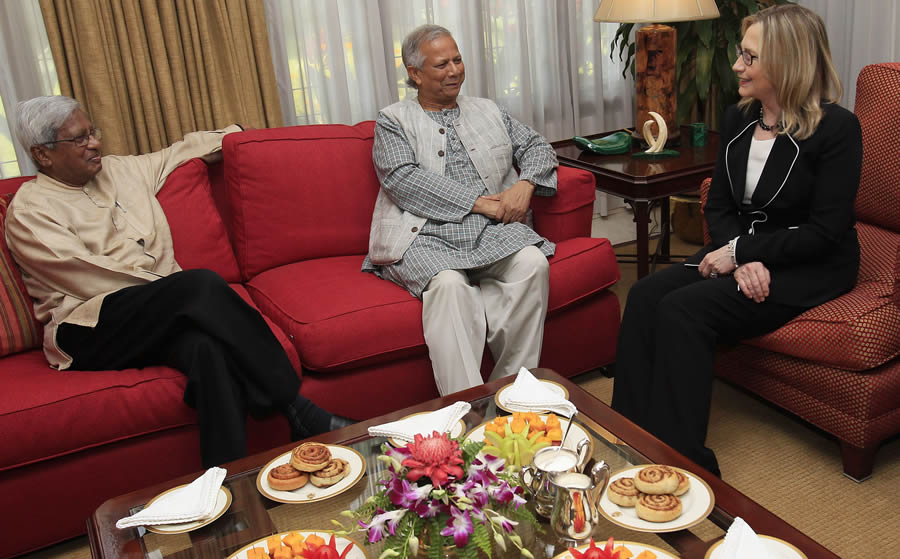Related reading: Seven Refugees With Active TB Sent to Idaho
Feds Spend $1 Million for Refugees to Become Farmers
Two new projects provide land leases to refugees
The U.S. Department of Agriculture is spending nearly $1 million to teach refugees how to farm.
FreeBeacon: New grants announced last week include two projects in Idaho and Kansas to “cultivate the next generation of farmers” by helping refugees get land leases to start their own farms.
The first project was awarded to Global Gardens, a Boise, Idaho-based organization that teaches refugees about farming and community gardening. The group will train refugees and Native Americans about organic vegetable farming.
“Global Gardens trains beginning farmers who have cultural, linguistic, or economic barriers to success which might prevent them from otherwise becoming successful farmers or accessing more mainstream farmer training programs,” the project grant states. “Our long-term goal is to create sustainable, profitable, independent small farm businesses.”
Project goals include assisting refugees in securing land leases on incubator farms, teaching refugees “financial literacy,” and providing nine paid internships on a farm.
“Expected outcomes include increases in knowledge of sustainable vegetable production, marketing, and financial literacy for participating farmers, establishment of new, refugee and Native-owned farms, and increased productivity and farm income for those already farming,” the grant said.
The project has received $597,867 and will continue through July 2019.
A second project titled “New Roots for Refugees” was awarded to Catholic Charities of Northeast Kansas. The project will create an incubator farm for newly settled refugees.
“The long term goal is that refugees farm in Kansas City independently on land that they own or lease at a scale that they desire and manage,” according to the grant. “To reach this goal, we have identified the following objectives: Removal of Barriers to Marketing, Adapted and Increased Agricultural Skills, Financial Management and Farm Capitalization, and Whole Farm Planning.”
The Kansas project will also provide leases to refugees so they can “establish a path toward managing their own farm business.”
“The long term goal of New Roots for Refugees is that refugees will farm independently on owned land or through lease agreements at a scale that they desire, achieve, and manage,” the grant said.
The grant is worth $380,433, bringing the total cost for the two projects to $978,300.
Idaho has one of the highest refugee populations in the country, taking in 1,000 each year, the majority of which are resettled in Boise.
Kansas takes in roughly 350 refugees per year, mostly from Iraq, Bhutan, and Myanmar.
*****
The Office of Refugee Resettlement supports economic development for refugees through their Microenterprise Development, Microenterprise Development-Home Based Child Care, and Individual Development Account programs. These programs equip refugees with the skills and knowledge of the American financial system so that they can become and stay financially independent.
General Economic Development
Financial Literacy Resources
This page lists links to financial literacy and education resources.
Recertification/Re-credentialing of Refugee Professionals Overview
Recertification or re-credentialing will allow internationally trained refugee professionals to return to their career of interest upon resettling in the U.S.
U.S. Medical Licensing Process
This page discusses how international medical graduates, refugees, and immigrants, who want to enter an Accreditation Council for Graduate Medical Education (ACGME) accredited residency must be certified by the Educational Commission for Foreign Medical Graduates (ECFMG).
U.S. Registered Nursing Licensing Process
Nursing licensure standards and regulations for international and domestic nurses in the U.S. are established by individual states.
Microenterprise Development
Microenterprise Development Program Overview
The Microenterprise Development Program helps refugees develop, expand or maintain their own businesses and become financially independent.
Microenterprise Development Grants: Grantee Listing
List of awards and grantees for the Microenterprise Development Grants program.
Microenterprise Development – Home Based Child Care
Microenterprise Development –Home Based Childcare Program Overview
The Microenterprise Development – Home-Based Childcare Program provides business opportunities to refugee women, focusing on childcare mentoring programs that will facilitate their integration into U.S. cultural norms and State Childcare requirements, in a market where there is a shortage of childcare providers.
Individual Development Accounts
Individual Development Accounts Overview
Individual Development Accounts (IDA) are matched savings accounts designed to help refugees save for a specific purchase. Under the IDA program, the matching funds, together with the refugee’s own savings from their employment, are available for purchasing one (or more) of four savings goals.
Individual Development Accounts Grants Grantee Listing
List of awards and grantees for the Individual Development Accounts Grants program.
Sample Individual Development Account Program Operating Procedures Manual
This sample Individual Development Account program operating procedures manual includes such areas procedures as intake, orientation, reporting, terminations, and more.






